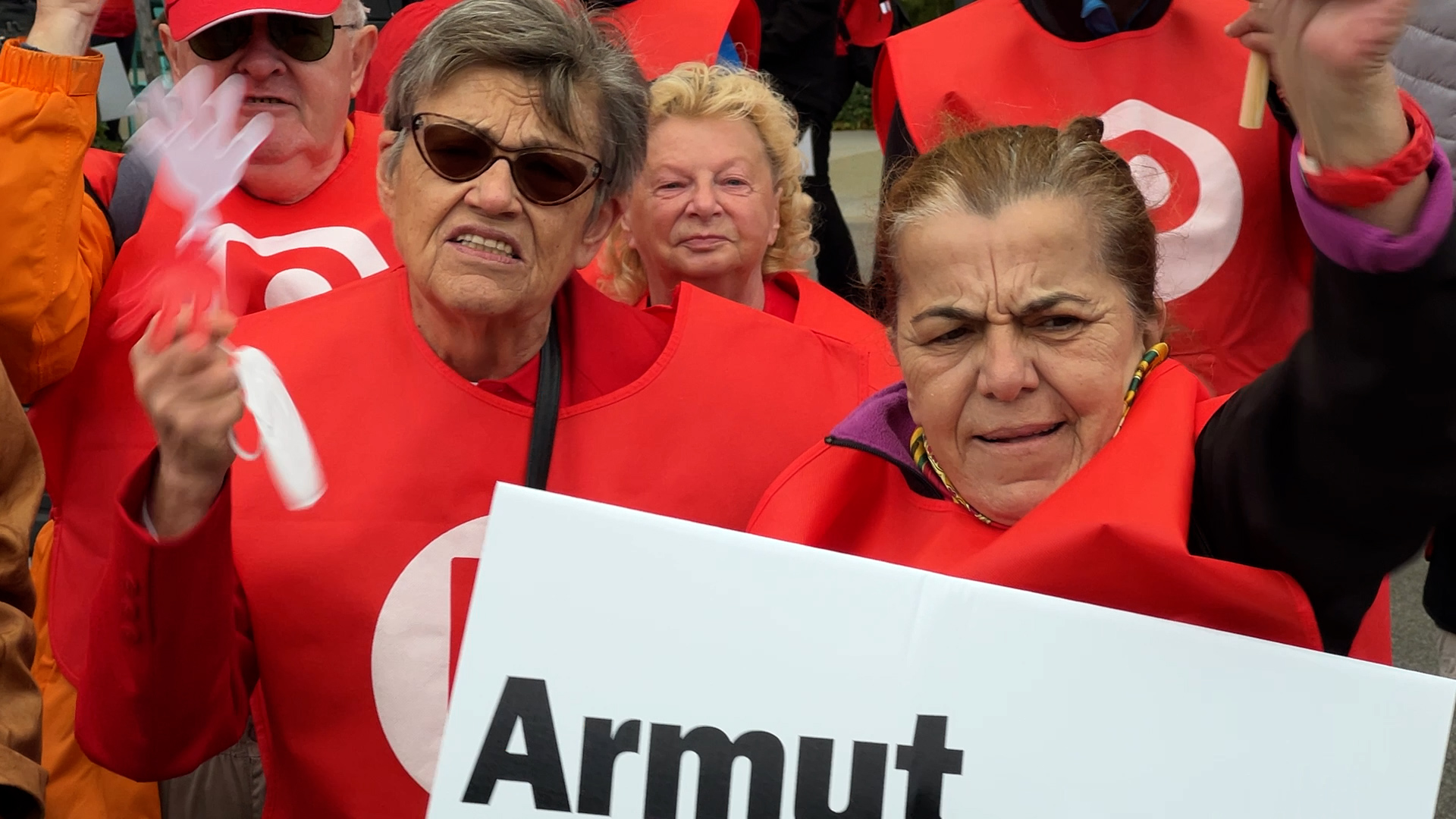
Thousands of Austrians came to the streets in protest to the increase in energy prices and inflation while chanting slogans against the government
Vienna, September 23 (RHC)-- Tens of thousands of people have taken to the streets across Austria in protest against rising energy prices, soaring inflation, and the government’s inability to deal with the rapidly worsening cost of living crisis.
According to the organizers, more than 30,000 people took part in the countrywide demonstrations, including 20,000 in the capital city of Vienna alone, chanting slogans demanding lower prices, higher wages, and an energy cap on electricity and gas bills. The protests were called by the Austrian Trade Union Federation (OGB) and were backed by trade union representatives and women's rights activists.
The inflation rate for the central European country for August stood at 9.3 percent while the consumer basket (cost of household consumption and essential services) rose 16 percent compared to the last year, as reported by Zeitung der Arbeit (ZdA).
Soaring energy prices coupled with runaway inflation have put the livelihood of people under heavy constraints after the European countries severed their energy ties with Russia, the main supplier of natural gas to Europe, over the Ukraine conflict, triggering a dire economic crisis on the continent.
Last week, protesters rallied in Paris demanding the resignation of French President Emmanuel Macron and the withdrawal of the country from the European Union and NATO due to the sudden increase in energy prices.
On September 3, 70,000 people rallied in Prague to protest the Czech government's excessive attention to Ukraine and to voice opposition to the European Union and the Western military alliance of NATO.
The protesters vented their anger over growing inflation caused by rising energy prices and the intake of Ukrainian expatriates in large numbers since February when Russia began its military operation in Ukraine. The military operation was launched following Kiev’s failure to implement the terms of the 2014 Minsk agreements and Moscow’s recognition of the breakaway regions of Donetsk and Luhansk.
At the time, Russian President Vladimir Putin said one of the goals of what he called a “special military operation” was to “de-Nazify” Ukraine. Now into its seventh month, the raging war has seen Western countries imposing waves of sanctions against Russia, leading to a lack of fuel and energy.
Russian authorities maintain that the flow of energy from Russia will be restored once the crippling sanctions are lifted.

